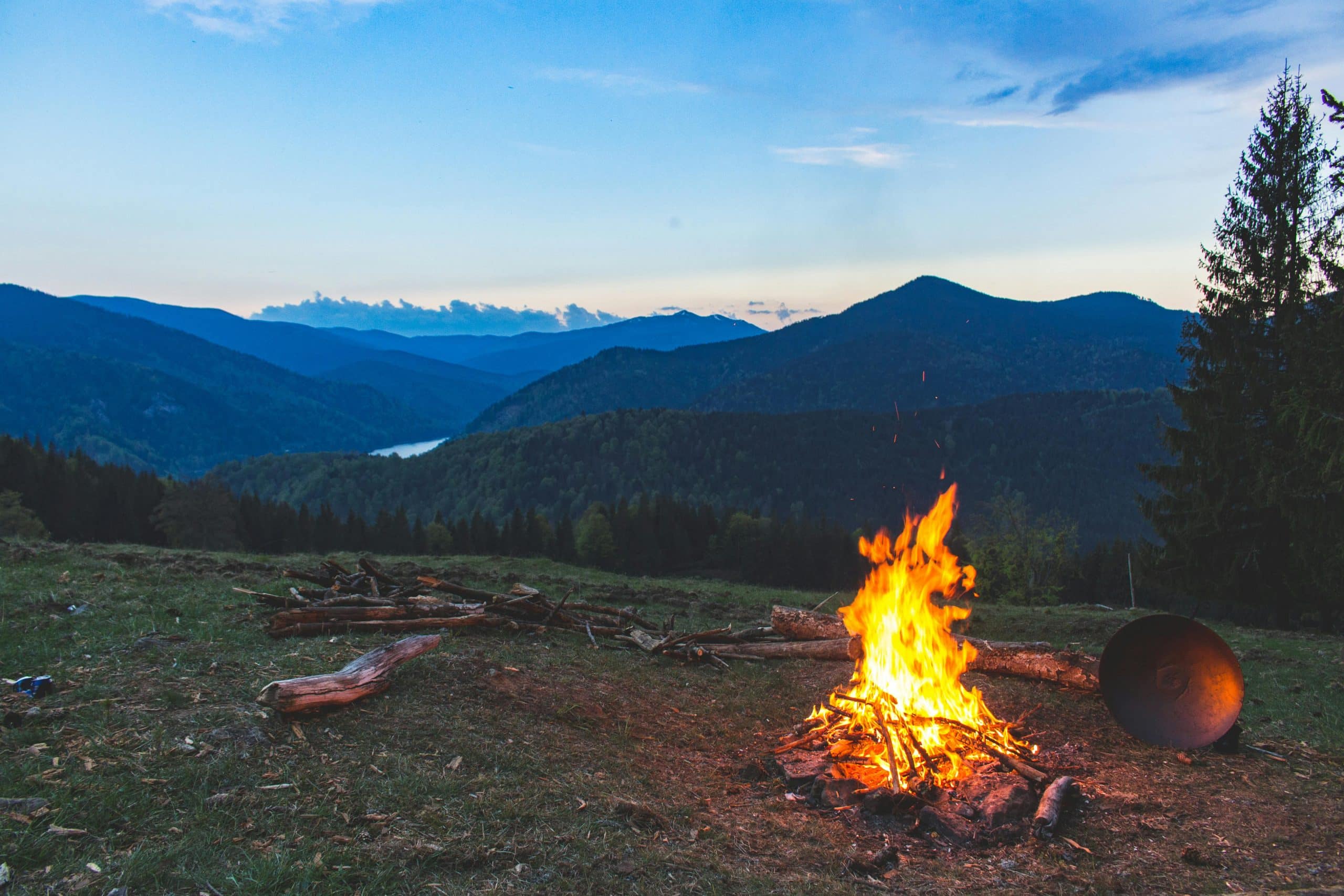How can you ensure your food stays fresh during a UK camping trip?

Embarking on a camping trip is a fun and adventurous way to get up close with nature. However, it often brings up a critical question: "How can we keep our food fresh, tasty, and safe to consume?" This query becomes especially pertinent when planning for camping in the varied and often unpredictable climates of the United Kingdom. This article will provide you with practical and effective strategies to ensure that your food remains fresh on your camping trip, focusing on efficient packing, suitable food choices, and effective cooler management.
Optimal Food Choices for Camping Trips
Choosing appropriate foods for your camping trip is the first step to ensuring freshness and quality. Some food options are better suited to the outdoor environment and can maintain their freshness without the need for a refrigerator.
Dans le meme genre : How to choose the right tent size for your family's camping trip?
Durable fruits and vegetables such as apples, oranges, potatoes, onions, and carrots are great choices. They can withstand the rigours of transport and fluctuating temperatures, and they don't require refrigeration. These fresh produce items are not only healthy but also versatile for cooking various meals.
High-energy non-perishable foods like canned goods (such as beans, soup, and fish), jerky, dried fruits, nuts, granola bars, and trail mix are ideal for camping. They're lightweight, take up minimal space, and provide necessary energy for hiking and other strenuous activities.
A lire également : What are the challenges of camping near UK archaeological sites and how to respect them?
Another great option for camping trips is pre-cooked and vacuum-sealed meals. These meals can be heated using a camping stove or even over a fire, providing a hot and hearty meal at the end of a long day.
Packing Your Food Efficiently
Packing your food efficiently not only ensures that your food stays fresh but also makes cooking and meal preparation more manageable when you set up camp. An organised food pack is a good food pack.
Using sealable, reusable containers will keep your food fresh and prevent any cross-contamination. These containers are particularly useful for pre-prepared meals, leftovers, or foods like cheese and cold cuts.
Ziplock bags are extremely versatile and should be a staple of your camping food kit. They're perfect for packing sandwich ingredients, snacks, and other perishable items. You can also use them to store leftovers or used utensils.
Remember to keep your food items separated. Raw and cooked foods should always be kept separate to avoid cross-contamination.
The Art of Cooler Management
A good cooler is a vital investment for keeping perishable foods fresh during your camping trip. It functions as your portable refrigerator, keeping your food cold and fresh.
Firstly, always pre-chill your cooler before packing it. Store it in a cool place and chill your food and beverages before putting them in the cooler. This ensures that the ice or ice packs don't waste energy cooling down the cooler and food and can instead maintain a low temperature for longer.
Pack your cooler strategically. Pack items in the reverse order of when you'll be using them, with the last day's foods at the bottom. This minimises the amount of time you need to keep the cooler open, reducing the amount of warm air that gets in.
Use block ice for longer trips. It melts slower than ice cubes, keeping your cooler cold for longer. For shorter trips, ice packs or frozen water bottles will suffice.
Remember to check and drain your cooler regularly. Water from melting ice can saturate the food, leading to soggy meals and potential contamination.
Cooking and Eating Safely in the Great Outdoors
Cooking outdoors might be a different experience from your everyday kitchen scenario. Therefore, observing safety measures becomes even more crucial.
When cooking, always ensure your food reaches the right temperature. This step is crucial, particularly for meats, to avoid foodborne illnesses. It might be helpful to pack a food thermometer to check the internal temperatures of your meals.
Keep your cooking and eating utensils clean. Carry a portable dishwashing kit with biodegradable soap for cleaning utensils, plates, and pots. This practice helps to avoid attracting wildlife to your campsite and prevents foodborne diseases.
Do not leave your food out in the open for long periods. Food left out can attract unwanted wildlife and insects and speed up spoilage due to exposure to the air and temperature changes.
Handling Water While Camping
Water is essential for your camping trip, and handling it correctly ensures you stay hydrated and safe from waterborne diseases.
Always bring more water than you think you'll need, and remember to account for cooking and cleaning, not just drinking.
Consider packing water purification tablets or investing in a good quality portable water filter. These can be lifesavers when you've run out of clean drinking water and are relying on natural water sources.
Your camping trip should be enjoyable and worry-free, and food safety plays a big part in that. By following these steps, you can ensure that your food stays fresh, safe, and delicious throughout your adventure in the UK wilderness.
Maintaining Your Cool Box or Cooler
Maintaining the efficiency of your cool box or cooler is vital on your camping trip. A well-maintained cooler will keep your perishable food cold, thereby reducing the risk of food spoilage.
A cool box or a cooler is an essential camping gear that forms the backbone of your food safety strategy. It's your portable fridge in the great outdoors, keeping your food cold and fresh. Hence, it's important to choose the right cooler. Consider the duration of your trip, the number of people, and the types of food you will be packing when selecting a cooler.
Ice packs are the lifeblood of your cooler. They help maintain the low temperature needed to keep your food fresh. For short trips, you can use frozen water bottles or ice packs. For longer journeys, block ice is more suitable as it melts slower than ice cubes, thus keeping your cooler cold for an extended period.
Regular draining of your cooler is essential. As ice melts, water can accumulate in the cooler, leading to soggy food and potential bacterial growth. Ensure to check and drain your cooler regularly to prevent these issues.
Proper packing of your cooler is another factor that can help maintain its efficiency. Pack your food items strategically, with foods for later in the trip packed at the bottom. This reduces the need to rummage through the cooler and minimises exposure to warm air, helping to maintain the cooler's internal temperature.
Using Appropriate Cooking Gear
The type of cooking gear you bring with you on your camping trip can significantly influence your food's freshness and taste.
Cast-iron cookware is a fantastic option for camping trips. Cast iron pots and pans are durable, maintain heat well, and can be used over an open fire. They're perfect for cooking a variety of camping meals, from scrambled eggs to stews and even baked goods.
A camping stove is another essential piece of equipment that can make cooking outdoors much easier. It provides a controlled heat source and can be used to heat pre-cooked meals, make hot drinks, or even cook a full course meal if you're feeling ambitious.
Reusable utensils are not only eco-friendly but also practical. They are lightweight, easy to clean, and can often be packed compactly to save space. Include basics like a spatula, tongs, a can opener, and a good sharp knife.
Finally, do not forget to pack some foil. It is a versatile addition to your camping kitchen. Foil can be used to wrap food for cooking, storing leftovers, or even as a makeshift lid for your pots.
Conclusion
Embarking on a UK camping trip is a remarkable experience that should not be marred by concerns over food freshness or safety. By paying careful attention to your food choices, packing methods, cooler maintenance, and cooking gear, you can ensure that your food stays fresh, appetising, and safe to consume throughout your trip. With the right planning and preparation, you can sit back, relax, and enjoy your culinary creations in the great outdoors. Remember, a successful camping trip is as much about the journey as it is about the delicious meals shared around the campfire. Happy camping!
